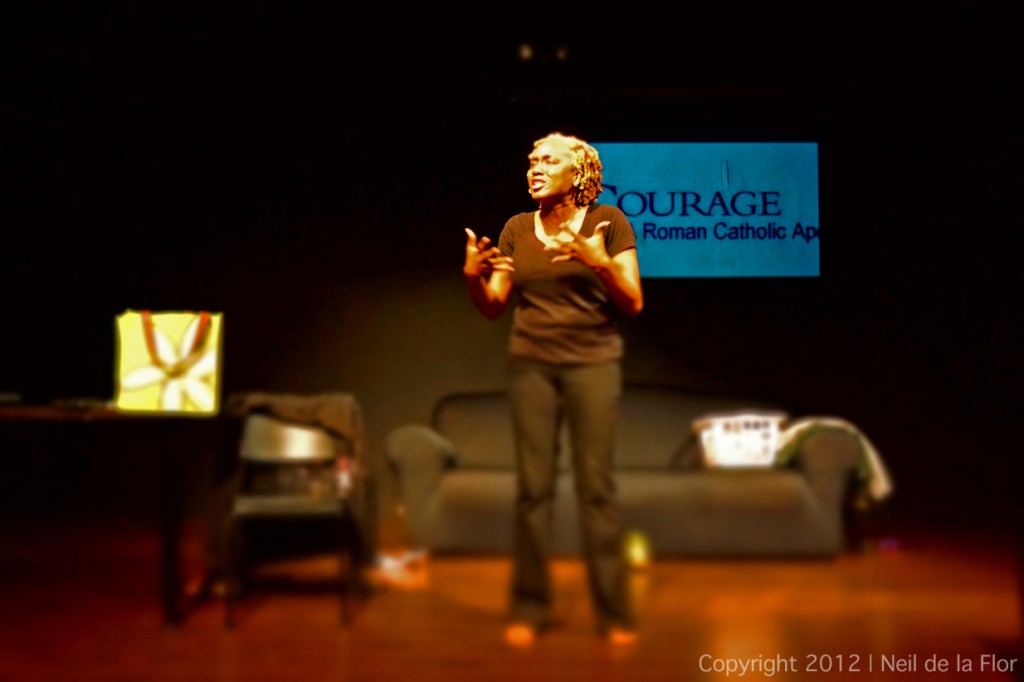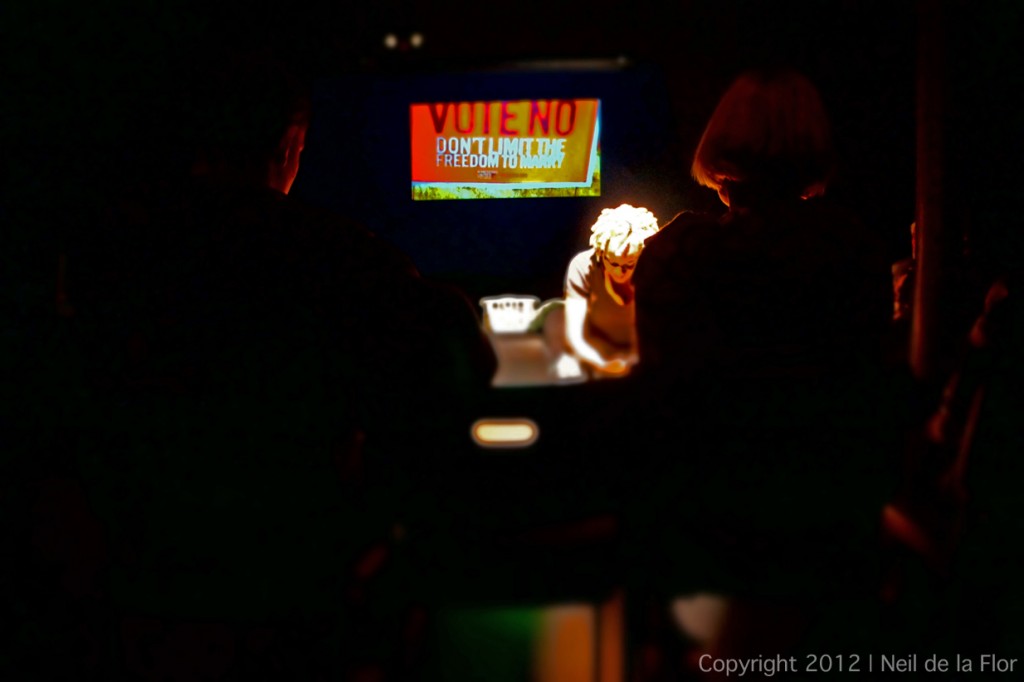
Christina Alexander is a one-woman show
“Alexander’s Hate! An American Love Story,” which debuted at the Miami Theater Center‘s Sandbox Series, explored the fine line between love and hate in a country (and world) polarized by these two illusory binaries. Christina Alexander courageously played eight characters and each character delivered a monologue that detailed their experiences with love and hate, strength and courage, racism and homophobia, rejection and isolation.
The two most powerful, coherent and connected monologues came from the two characters who seemed to have the least in common—an ex-military soldier and a homosexual man. As it turns out, these two men shared one common experience—coming out in America.
The solider began his story with “Don’t Ask, Don’t Tell” (DADT), the military policy that once banned homosexuals from identifying and acting upon their sexual preference. In addition, soldiers were forbidden from ‘thinking’ about such things. As the monologue progressed, the soldier revealed that he didn’t care if his fellow soldiers were gay so long as they do their job, which they did. As the monologue progressed further, the solider discussed his own coming out journey which began with DADT and exploded with a chance encounter at a gay pride parade in San Francisco. This is where he witnessed, for the first time, the outward expression of same-sex love—and sex wasn’t the dominant part of the equation. The soldier became aware that loving a man was an option because it was an option; and it appeared as natural and normal as any other kind of love.
Christina Alexander. Photo by Neil de la Flor
Alexander’s second most compelling character was a homosexual man whose life was torn by his desire for men and his love for God. He was a churchgoing fellow who would do almost anything to rid himself of the ‘gay’, including enrolling in an ex-gay program. He looked forward to earning the right to wear a tee-shirt that proclaimed he was an ex-homosexual. However, as time revealed, this was not possible, at least not for him. His love for God and his love for men rivaled each other. Unfortunately, he had to choose between picketing gays with his church during gay days at Disney or joining the throngs of gay men and women enjoying gay days at Disney. He chose love, not hate. As a result, he was hated by his church, the thing that he loved almost as dearly as being the man he was born to be.
Sometimes love and hate appear as binaries that are really parallel threads that are knotted together and woven throughout the course of our lives. These threads can’t be cut (until we’re dead). We just have to keep on walking in our worn out shoes. Sometimes our stories radically shift from beginning to end, and sometimes this shift is necessary to find out who we are as opposed to what everyone else wants us to be. Alexander gave us a glimpse into the inner workings of the human psyche and why it is important to break this paradox of hating what is love in America.
Recent Content
-
Artsarticle ·
-
Artsarticle ·
-
Artsarticle ·


